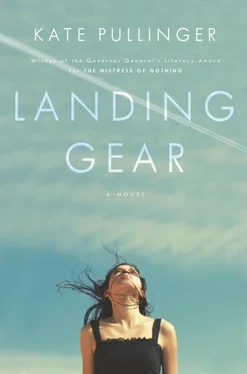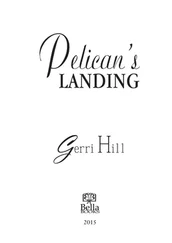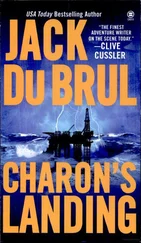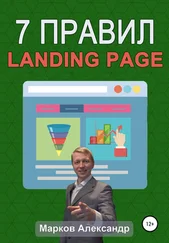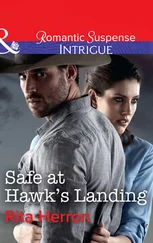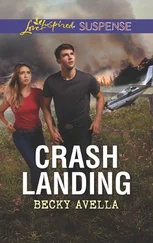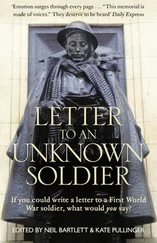“At the back of the big room, high up above the stage, there was a series of platforms—I guess what was left of the cold storage units. There was a rickety set of stairs. It was late, really late, around three in the morning, and I had got very cold—it was so cold inside that building, whatever time of year—and I was thinking about heading home. The band, or at least part of the band, was still playing. I looked up and I could see that a large group of people had climbed up to the platforms and they were dancing. I saw Barry, she was up there dancing alone, doing a kind of slow gyrate with her hands on her belly. I called up to her and waved, but the music was too loud, she couldn’t hear me.
“And then it happened. The little platform she was standing on gave way, right beneath where she was dancing. She fell through the air. I saw it happen. I looked up and she was falling. She looked surprised, not frightened, just sort of—hey, what’s this? She was falling. Falling. She hit the side of the stage and landed half on it, half on the floor. The band stopped playing.”
Michael took her hand.
Emily stared into the viewfinder, afraid to look up.
“She fell through the air. She landed hard,” Harriet said, her voice soft. “She did not get up and walk away.”
Emily knew the story, Harriet had told it to her a few times, but never like this, so plainly.
“Somebody ran out into the night to find a phone to call an ambulance. Someone else tried to move her, but she screamed and we all shouted at him to stop. I rushed to her and stroked her hair, and held her hand, and talked to her. She was conscious, but not really. A lot of blood from where she had hit her head. But the worst thing was the way she was lying, half on, half off the stage, like a broken thing, a broken doll.
“The ambulance came, and I went with it. You were born. And Barry died.”
Through the camera, Emily could see Harriet’s eyes glinting, heavy.
“Turn off the camera, Emily, please.”
Emily turned off the camera, and Harriet turned to Michael. He drew her close, and she cried. Emily could hear her, and she could see her shoulders heaving. She got up to fetch a box of tissues from her bedroom. Before returning to the sitting room, she opened her drawer and pulled out the old yellowed Polaroid that Harriet had given her not long after they met for the first time. In it, Barry was laughing. She was wearing a flowery summer dress with spaghetti straps and a wide-brimmed straw hat. The sun was shining and beyond the flowers was a view of London rooftops. On the back was an inscription in Harriet’s handwriting, “Vauxhall, spring 1986: Barry, in our wild rooftop garden.”
Yacub was Emily’s final interview, the last interview she was going to do for this project. One more interview, she told herself, then that was it.
He came in and sat down on the sofa straight away. Though it was Sunday morning, he had to be out at Heathrow for work that afternoon. “Turn the camera on, I’m ready,” he said.
Emily obeyed. “You know, it turns out you’re my nearly-brother, in a way,” she said, “according to Harriet and Jack.”
“Nearly-brother,” he said. “Almost-cousin. My goray family.”
“My colleague, Rob—”
“Who is this Rob?” Yacub asked. “You keep mentioning him. I hope you aren’t considering some kind of involvement with this man prior to introducing him to us?”
“I’ll bring him next time I come for tea.”
Yacub nodded, satisfied.
“Rob went to Pakistan to film for the BBC recently.”
“Oh?”
“He had an amazing time—he wants to meet you. Anyway, he said the two things he noticed most while he was there—”
“Apart from the extreme danger and violence and desperate poverty?”
“Apart from that—was the fact that the whole time he felt like a giant white alien, and that Pakistanis are world-class experts at staring.”
Yacub laughed. “It’s a funny thing, isn’t it. It was something I learned when I was working for Imran in Dubai. Not everyone in the world is as happy to stare or be stared at. This is something at which Pakistanis excel.”
“Rob rather liked it. He said he figured that if everyone felt free to stare at him with such dedication, he was free to stare right back.”
“Stare right back!” Yacub repeated. “Good idea.”
“Okay,” said Emily, indicating the camera.
“There isn’t really anything more to talk about, is there?” Yacub asked.
“Isn’t there?”
Yacub spread his hands and raised his eyebrows.
“I have a theory,” Emily said.
“I’m not a djinni,” Yacub replied. “I’m not dead either.”
“I might have never met Harriet if it wasn’t for you.”
Yacub shook his head. “You’d been following each other for so long, at some point you were bound to collide.”
“Maybe. I saw you fall. And I know you saved Jack’s life. And Harriet and Michael—you helped them.”
“No. They are married. They are happy.”
“What do you really think about all of us, Yacub?”
He shrugged. “I’m here. This is where I belong.”
“Do you think?”
Yacub shrugged again. “Sometimes. Some days.”
“Tell me about when you were on the plane, Yacub.”
A frown passed across Yacub’s face. “What plane?”
“Tell me what it is was like on that tiny metal shelf above the landing gear beneath the belly of that airplane.”
Emily sat staring at her computer screen. Three hundred and sixteen hours of footage, including all the covert filming she’d done between 2010 and 2012. Another hundred and twelve hours of filming since then. Two thousand five hundred and fifty-seven photographs. Twelve hours of Emily’s own straight-to-camera narration. Seven interviews. It was all there. The story of Harriet, Michael, Yacub and Jack. Her story, Emily’s own story, the story of her birth mother, and Harriet, and…
It was impossible. She hadn’t begun to edit and already she felt defeated.
Work on Ginger was, as always, very busy, and now that Emily had been promoted, she often worked a six-day week. Time off was exceedingly precious. Once the current series began to air, with its new, more elaborate punishments, more than half of the participants had tried to pull out, and it had become her job to keep them sweet, to prevent them from leaving. One girl, whose name was Edna and whose long, wavy hair was like spun sugar flavoured with mandarin, completely otherworldly—had dyed her hair black. She showed up on the set a few days after walking out, wanting to return, and the executive producer threatened to sack her. Emily persuaded him to keep the girl on—her hair would grow out, which was almost a storyline in itself, and she still had those mandarin eyebrows, those eyelashes, those freckles. Why anyone would agree to be on the show was beyond Emily, but she was good at her job.
She thought of her father. “Get on with it, girl,” he’d say. She thought of the silver-scaled coffin he was buried in. It did make her laugh now, enough time had lapsed. He’d be pleased.
Okay, get on with it. She opened a new document. I’ll do it. I’ll do it the way I know best. The reality show version. Do a draft script and a rough edit. Then at least I’ll have something to work on, something to work against. Something to show for myself.
EPILOGUE

OUR STUFF AND OUR THINGS
SPRING 2015
TITLE SCREEN:
FALLING
a documentary by Emily Barry
A CLOSED LAPTOP. Anonymous hand opens screen. Browser opens to YouTube. Video begins to play in browser:
Читать дальше
